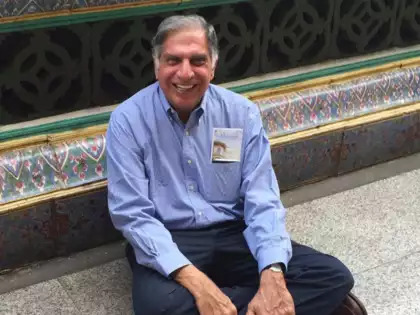Ratan Nawal Tata, born on December 28, 1937, is one of India's most revered industrialists and philanthropists. As the chairman emeritus of Tata Sons, the holding company of the Tata Group, he has played a pivotal role in shaping the Indian industrial landscape. His leadership, vision, and business acumen have not only propelled the Tata Group to global heights but have also set a benchmark for ethical leadership in business.
Early Life and Education
Ratan Tata was born into the prestigious Tata family, which has been synonymous with Indian business for over a century. Despite his privileged upbringing, he was taught the values of humility, hard work, and perseverance. After completing his schooling in Mumbai, Tata pursued his higher education in the United States. He earned a degree in architecture from Cornell University and later attended the Advanced Management Program at Harvard Business School.
Entry into the Tata Group
Ratan Tata joined the Tata Group in 1962, beginning his career at Tata Steel. His initial years were spent working on the shop floor of the company’s steel plant in Jamshedpur. This hands-on experience provided him with a deep understanding of the company’s operations and the challenges faced by its employees. His journey within the Tata Group wasn’t marked by instant success, but rather by years of learning and contribution in various capacities.
In 1991, Ratan Tata took over as the chairman of Tata Sons, succeeding J.R.D. Tata. The early years of his chairmanship were challenging as he was tasked with modernizing the conglomerate, which had become somewhat stagnant by then. Many doubted his ability to fill the shoes of his legendary predecessor, but Ratan Tata proved his mettle through bold decisions and a visionary approach.
Globalization and Expansion
Under Ratan Tata’s leadership, the Tata Group underwent significant transformation. One of his most remarkable achievements was the globalization of the group. He spearheaded several high-profile acquisitions, including the purchase of Tetley Tea in 2000, the acquisition of South Korea’s Daewoo Commercial Vehicles in 2004, and the landmark buyouts of British companies Corus (2007) and Jaguar Land Rover (2008). These acquisitions not only expanded the group’s global footprint but also established the Tata brand as a major player in the international market.
His vision for Tata Motors led to the development of the Tata Nano, the world’s cheapest car, aimed at providing affordable transportation to millions of Indians. While the Nano did not achieve the commercial success that was anticipated, it showcased Ratan Tata’s commitment to innovation and his desire to improve the quality of life for the common man.
Ethical Leadership and Philanthropy
One of the hallmarks of Ratan Tata’s leadership has been his unwavering commitment to ethics and corporate social responsibility. He ensured that the Tata Group upheld the values of integrity, transparency, and fairness in all its business dealings. Under his guidance, the group continued its legacy of contributing to social causes, with significant portions of its profits directed toward charitable activities through trusts.
Ratan Tata’s philanthropic efforts extend beyond business. He has been involved in numerous charitable causes, particularly in the fields of education, healthcare, and rural development. The Tata Trusts, which he oversees, have funded various initiatives aimed at improving the lives of underprivileged communities in India.
A Lasting Legacy
Ratan Tata stepped down as the chairman of Tata Sons in 2012, handing over the reins to Cyrus Mistry. However, his influence within the group and the larger Indian business community remains profound. He is widely respected for his vision, humility, and dedication to the welfare of society. His personal investments in startups and his active presence on social media also demonstrate his forward-thinking approach, even in retirement.
In 2020, Tata received the honor of being appointed to the Prime Minister’s "Empowered Group" to manage India’s COVID-19 response, further cementing his stature as a national figure.
Ratan Tata’s legacy is not just one of business success, but also of ethical leadership, social responsibility, and a deep-rooted commitment to the progress of India. His journey continues to inspire generations of entrepreneurs and leaders worldwide.



